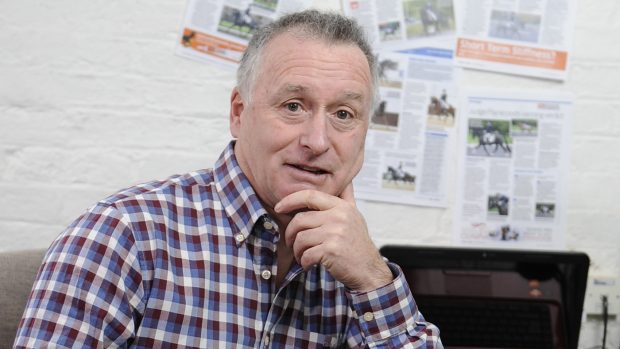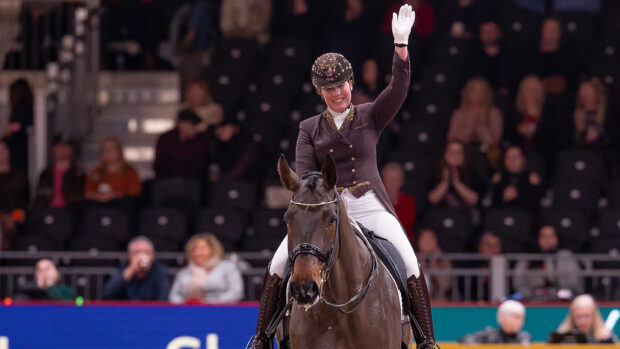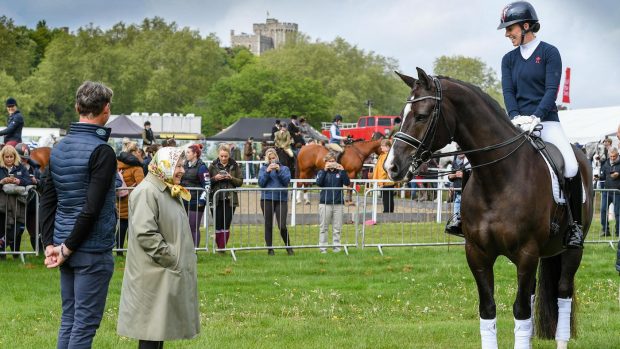Carl Hester reflects on his bucket list visit to Portugal’s Golegã Horse Fair, where he watched the Lusitanos and experienced the country’s horse culture
This was the year I finally ticked something off my bucket list that I’ve always wanted to do. I’d seen the videos of the horses on the internet, and I’d read and talked about it, but this month it was time to go and see the Golegã Horse Fair for myself.
The passion of the Lusitano breeders is evident the moment you arrive in Golegã, a charming town in the Ribatejo region, which is the agricultural heartland of Portugal.
We arrived at midday, having driven about an hour and 20 minutes from Lisbon. By that time it was already challenging to find a parking spot anywhere near the town and queues of people were gathering all around us. Bear in mind this is a 10-day festival and I was there for just 24 hours.
I went with my dressage experience to see the best of the Lusitano breed, the riding and to enjoy the atmosphere, but nothing prepared me for the spectacle, with the town square converted to an arena and displays until 3am. Health and safety wasn’t a concern – the colourful traditional dress doesn’t exactly lend itself to helmets.
A small indoor arena where people were showing horses to the public to try and buy was a little quieter, but the size of the fair was almost overwhelming, as was the number of people. One of the highlights was being in the indoor, where people from all around gathered to watch some of the best riders showing off their horses.
An elite horseman at Golegã Horse Fair
Particularly impressive was Manuel Borba Veiga. You might have seen him online doing a series of one-tempi changes facing backwards. His soft and easy way of riding and presenting his horses with sensitivity give him elite status as a horseman.
He comes from a family who have been farming and breeding horses since the 1800s, and who have bred many outstanding Lusitanos. Among them is Novilheiro, who gave John Whitaker great success in the 1980s.
Manuel has represented Portugal at two World Championships and came to Olympia in 2016 with the Pride of Portugal display team. I gather he has another grand prix horse on the way as well.
It was also fascinating to talk to breeders about their plans for the breed, as they try to refine longer neck shapes, adding elegance to the Lusitano conformation. At a dinner I attended in the evening, in a small courtyard, four-year-old stallions were ridden in, and the riders chatted to the guests.
An open and inclusive fair, Golegã was founded in the 18th century as an agricultural fair to promote the region’s produce. The many well-known Lusitano breeders in the area were encouraged to show their horses at the fair, which led to the Lusitano horse becoming the main attraction. It was renamed the Feira Nacional do Cavalo (National Horse Fair) in 1972 and today it’s the largest horse fair in Portugal. It’s also great fun.
It was one of the most amazing equestrian spectacles I’ve ever seen in my life and if you ever get a chance to attend I’d highly recommend it.
“The horse is part of life”
Coming back to dressage, I wanted to see how young people there get involved with horses and the sport.
I saw a six-year-old girl riding side-saddle aboard a strapping stallion. They piaffed their way around while her proud father explained it was traditional, not just for dressage, that all children should learn the basics. As I’ve always said, if you’re lucky enough to be able to, get a schoolmaster to teach the young. There were even some children who looked no older than two sitting up in front of their mothers as they were riding around the square.
The horse in Portugal is a tradition first. From day one anyone who wants to can learn to ride. Inclusivity is the key here. For the Portuguese, the horse is part of life and not a privilege exclusive to the elite.
● Have you been to the Golegã Horse Fair? Write to us at hhletters@futurenet.com, including your name, nearest town and county, for the chance to have your memories published in a future edition of Horse & Hound magazine
- This exclusive column will also be available to read in Horse & Hound magazine, on sale Thursday 23 November, 2023
You may also be interested in…

Undercover TV documentary on Helgstrand Dressage to air this week – as stud announces measures to improve welfare

Charlotte Dujardin and Lottie Fry set to delight dressage fans in London

Best Cyber Monday equestrian deals 2025, 50 hand-picked deals by our experts and horse owners

Subscribe to Horse & Hound magazine today – and enjoy unlimited website access all year round
Horse & Hound magazine, out every Thursday, is packed with all the latest news and reports, as well as interviews, specials, nostalgia, vet and training advice. Find how you can enjoy the magazine delivered to your door every week, plus options to upgrade your subscription to access our online service that brings you breaking news and reports as well as other benefits.




